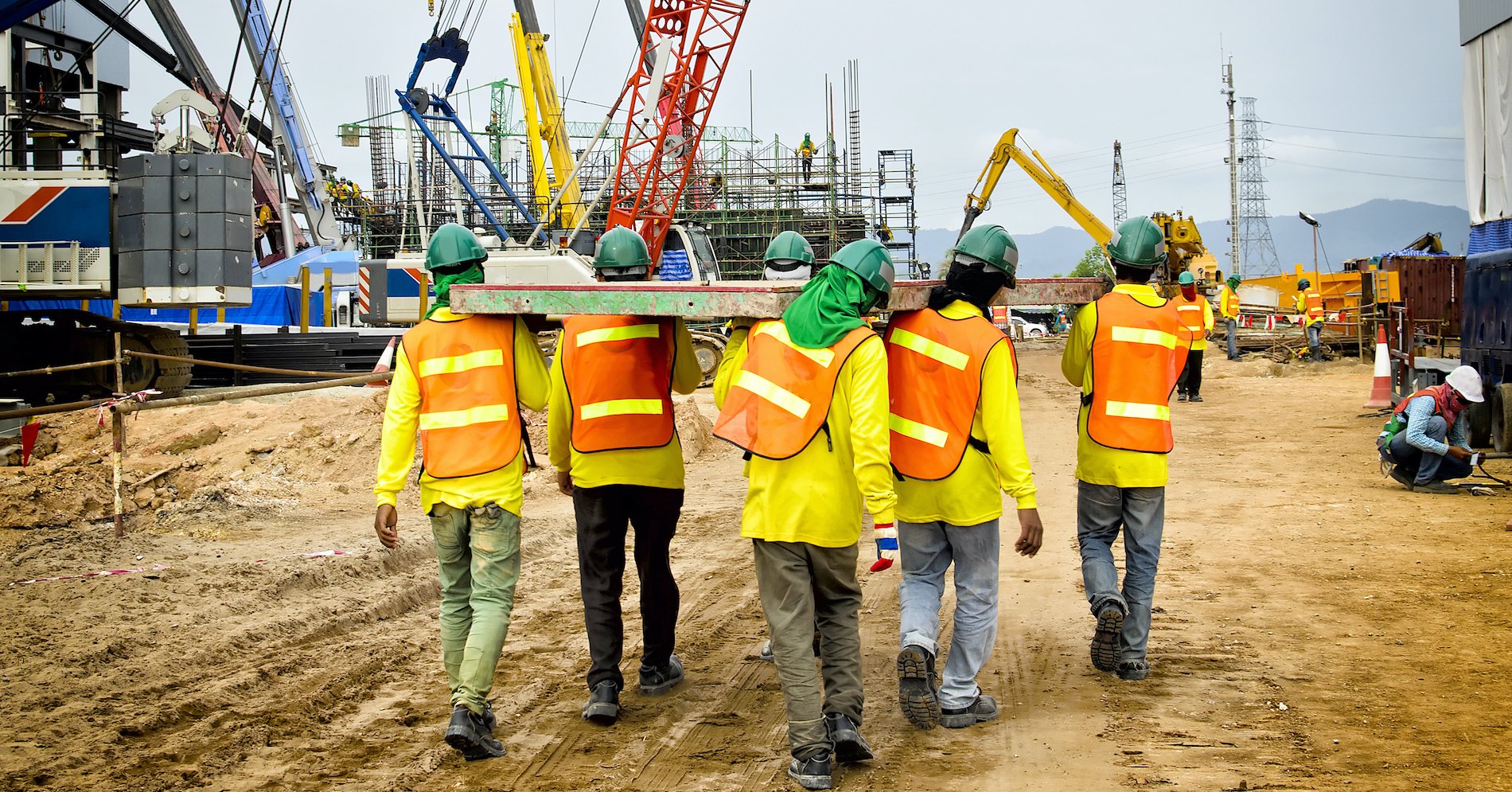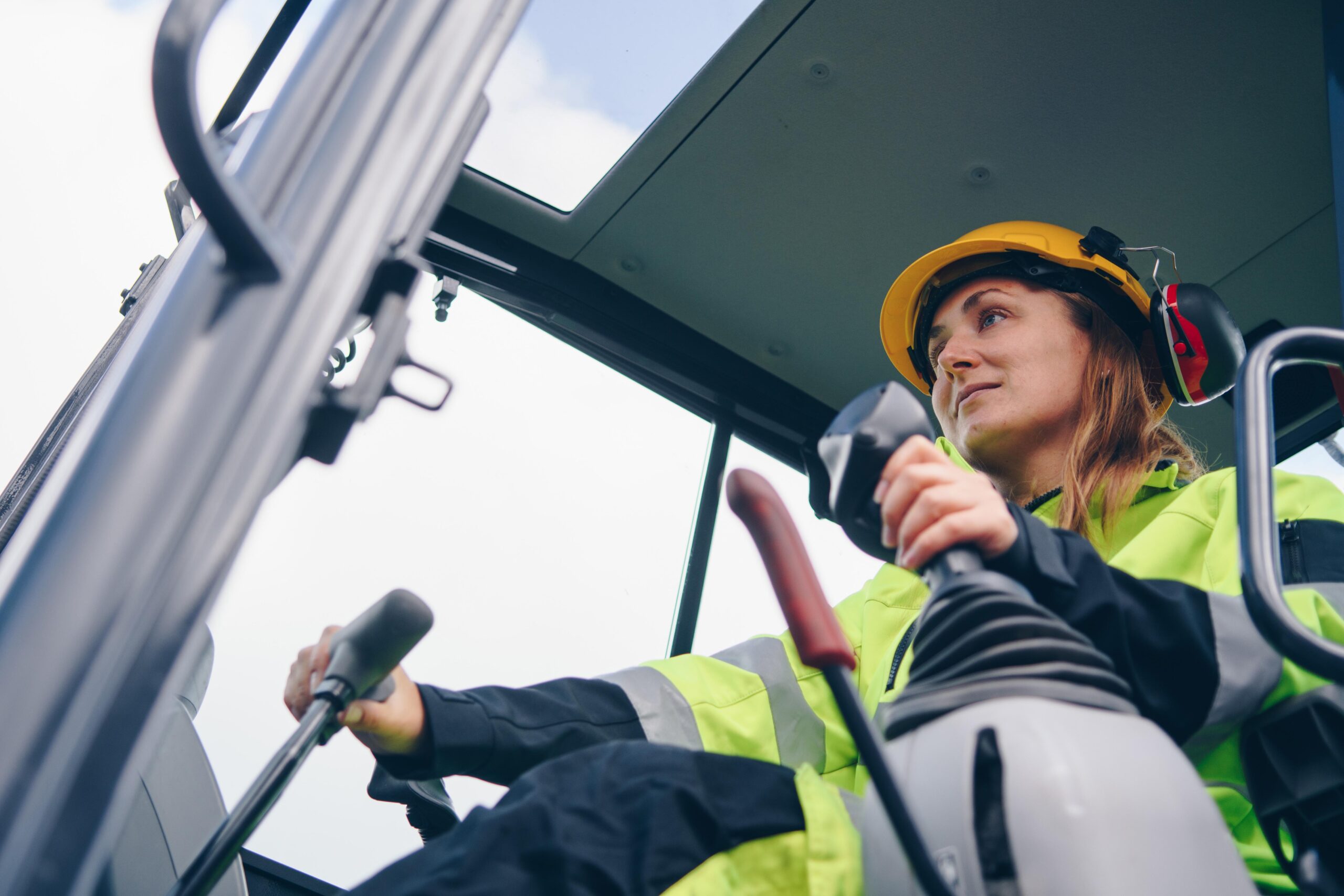Mastering the Art of Operating Construction Machinery
Improve your proficiency in construction machinery. Our comprehensive course makes you an expert in heavy-duty equipment operation.

If you've ever wondered how to master the art of operating construction machinery, you're in the right place. This expansive field, teeming with complex vehicles such as bulldozers, excavators, and backhoes, represents a vital part of the heavy equipment industry. Understanding the operation of these machines is crucial for safety, efficiency, and overall project success.
Why Construction Machinery Operation Training is Crucial
While the use of heavy machinery is ubiquitous in the construction industry, proper training can't be overlooked. Each machine has its unique set of functions and limitations. Mastery over the operation of these machines is critical to mitigate the risks of accidents and to ensure optimal performance.
Table of Contents
- Understanding Construction Machinery
- Basic Training Principles for Operating Heavy Machinery
- Advanced Techniques in Construction Machinery Operation
- Recognizing and Adhering to Safety Protocols
- The Importance of Continuous Learning in Construction Machinery Operation
Understanding Construction Machinery

It's not all about raw power when it comes to construction machinery. Different machines are designed for specific tasks, and understanding their distinctive capabilities is the first step towards operating mastery. Let's take a look at three commonly used heavy machinery pieces:
- Bulldozers: Known for their impressive strength, bulldozers are primarily used for pushing large quantities of soil, rubble, or other material during construction works. They are equipped with a large metal plate (also known as a blade) at the front.
- Excavators: They serve multiple purposes, from digging trenches and holes to removing debris and lifting heavy objects. These machines are characterized by their long bucket arm attached to a pivoting cab that houses the operator.
- Backhoes: A hybrid of the previous two, backhoes come with a small bucket at the front and a larger one at the back for digging. They are renowned for their versatility and are used in various construction activities, including excavating and building foundations.
Basic Training Principles for Operating Heavy Machinery

Moving towards how to operate these machines, there are several universally accepted training principles. No operator should jump into the seat without a solid grasp of these tenets:
Openness to Learning
Operating construction machinery requires an ongoing commitment to learning. New technologies are being integrated into machines, making them more complex. Each machine presents unique challenges and learning curves, and capturing these nuances requires a willingness to learn and adapt.
Rule Adherence
Construction zones are governed by a myriad of rules to maintain the safety of everyone involved. Therefore, comprehensive training should include a focus on the rules and regulations that pertain to construction machinery operation. Examples of such rules are wearing proper safety gear, conducting pre-operational machine inspections, and adhering to designated traffic routes on site.
Advanced Techniques in Construction Machinery Operation

As one becomes more comfortable with a machine, they can start exploring advanced operation techniques. These responsibly applied techniques can significantly enhance productivity while minimizing wear and tear on valuable machinery.
Fine-Tuning Controls
Operators with advanced skills can demonstrate smooth machine control that reduces abrupt movements and enhances operational precision. Examples include seamlessly transitioning between gears and adjusting operating speed according to task requirements.
Coupling these techniques with a deep understanding of the machine's capabilities can contribute to a more productive and safer working environment. As John Muir once said, "When we try to pick out anything by itself, we find it hitched to everything else in the universe." What he meant was nothing operates in a vacuum, and this is especially true in the context of heavy machinery operation.
Understanding the Machine’s Limitations
No matter how adept an operator becomes, it is essential to remember that every piece of equipment has limitations. Pushing the machine beyond its design capacity could lead to breakdowns or, worse, accidents. Therefore, operators must know the established load limits, digging depths, lifting capacities, and other specifications of their respective machinery.
Recognizing and Adhering to Safety Protocols

Although efforts should continually be made for technological advancements to enhance machinery safety, it falls on the operator to ensure these safety features are correctly utilized. Safety protocols should always be a priority. Here are a few important safety considerations:
- Personal Protective Equipment (PPE): Operators should always wear the proper PPE, including heavy-duty work gloves, safety glasses, hard hats, and steel-toed boots.
- Communication: Operators must maintain good communication with other workers on the job site. This can be done either verbally or with standard hand signals.
- Inspections: Regular pre and post-operation inspections are crucial to spotting potential issues before they escalate to serious problems.
- Safety Zones: Establish and adhere to safety zones to minimize the risk of accidental injuries, especially when working with large, heavy machinery.
The Importance of Continuous Learning in Construction Machinery Operation

Building a career in construction machinery operation is not a static process. Technologies are always evolving, safety protocols are constantly updated, and machinery models are regularly improved. If an operator stands still, they inevitably fall behind. This is why embracing continuous learning is so important. Here are a few suggestions on how to make lifelong learning a part of an operator's routine:
Industry News and Updates
Operators can stay current by keeping an eye on industry news and updates. This can be as simple as subscribing to industry-related newsletters or joining online professional communities. Manufacturers and industry organizations often share the latest advancements, research findings, and upcoming events that might benefit operators.
Professional Development Opportunities
Continuous professional development is not only beneficial for career advancement, but it's also a regulatory requirement in many areas. Investigate what options are available, whether it's training courses, certification programs or workshops. These opportunities will serve to broaden the skillset and enhance the overall competence of any machine operator.
Mentorship
Mentorship is a valuable resource for learning. Experienced operators have dealt with multiple scenarios and are often willing to share their knowledge. A mentor can help guide a novice through the complexities of the job by showcasing best practices, sharing real-life insights, and providing actionable advice.
In conclusion, mastering the art of construction machinery operation is a journey, not a destination. The field extends far beyond the ability to steer a bulldozer or operate an excavator. True mastery involves a deep understanding of equipment capacities, steadfast adherence to safety protocols, and a commitment to continuous learning. As Isaac Newton once noted, "If I have seen further, it is by standing on the shoulders of giants." This is an apt description for aspiring operators — on the job site, we always learn from the experience of those who came before us.
What's Your Reaction?











































































